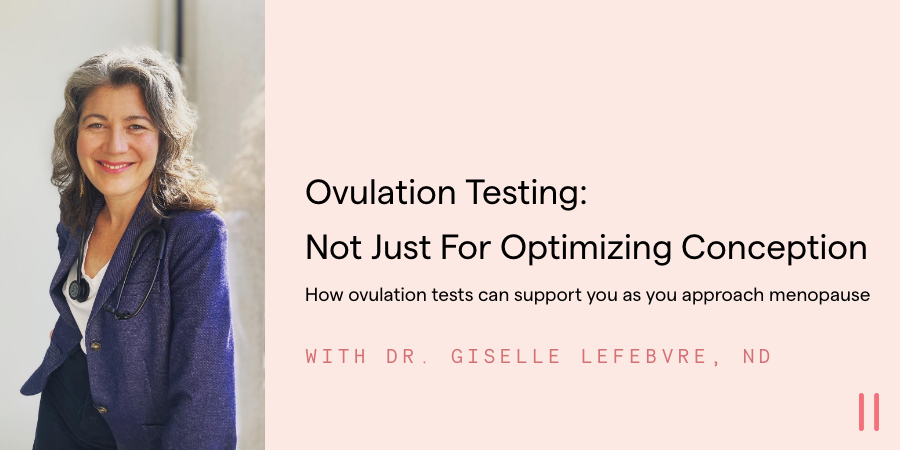Dr. Giselle helps busy people have more energy through a seasonal, holistic approach to wellness. A naturopathic doctor and trained doula practicing since 2003, her approach is realistic, resourceful, and radical. Dr. Giselle Lefebvre, ND practices online www.doctorgiselle.com, in person www.geneticamedical.com and supervises the student clinic at Empower Health.
Ovulation is a vital sign
Ovulation tracking is part of your overall health assessment, whether you’re trying to conceive or not. And, as you are nearing the end of your menstrual cycles (perimenopause), there is great value in paying attention to when you ovulate.
Dr Jeri Lyn Prior, director of CEMCOR says “I believe that ovulation with a normal luteal phase length – and normal amounts of progesterone to counterbalance and complement estrogen – is of key importance for women’s bone, breast and heart health.”
We have learned through the work of CEMCOR that ovulation disturbances will result in bone loss. Through supporting regular ovulation, we can decrease osteoporosis risk. Ovulation is an indicator of our health, both in the short and long term.
Perimenopause is a time to test
After an average of 400 cycles ovulation starts to become erratic as estrogen surges and progesterone drops. This is known as perimenopause, the period of time where the body makes the transition to menopause, effectively ending one’s fertile years.
Signs you might be nearing your perimenopause times:
- things start feeling “off”
- mood is more erratic
- negative thoughts
- sleep interruptions
- hot flashes
- less motivation
- changes in libido
- heavy periods
If you start having new symptoms, it’s important to talk to your health care provider as you may be entering perimenopause and could benefit from medical support.
What to do
Book in with your medical doctor, naturopathic doctor, functional medicine doctor or trusted healthcare practitioner of choice, as they can provide support for the symptoms you may be facing. You do not have to suffer through this naturally occurring, although often destabilizing, period of your reproductive journey.
When a person comes to see me to talk about the transition from regular cycles we aim to learn as much as we can through symptom identification and functional testing. Other factors to consider are:
- How have you been sleeping?
- What are your stress levels?
- Is there a chance of pregnancy?
One of my most used tools when working with perimenopause patients is a dried urine test for comprehensive hormones (DUTCH).This test provides us with a lot of great information about what is happening with your hormones and helps us figure out the best next steps.
Hormone testing will identify if there is a need for hormone replacement, the level of cortisol throughout the day and give us insight on your body's detox pathways. You will receive a full assessment of your estrogen balance and information on how your body is dealing with stress.
This high value test is optimized by capturing ovulation as the DUTCH test should be performed ideally within 5-7 days post-ovulation. Using ovulation test strips makes pinpointing this timeframe easy..
With the right information and support from your trusted healthcare provider, you can (and deserve to) experience a smoother transition into menopause.

